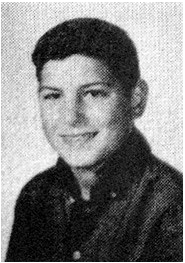Saturday, October 5, 2013
Sadness, Drive, Loss: On the Death of Steve Jobs
It's a small article on WSJ.com entitled "For Jobs's Biological Father, the Reunion Never Came." The article doesn't really have much to add beyond the headline. Yes, it has the proper journalistic details, but I nonetheless couldn't help but feel a profound sense of sadness from reading it.
It's common knowledge that Steve Jobs was born out of wedlock; that his birth parents later married and produced a sister; that Jobs grew up in the happy home of his adoptive parents; and somewhere around the time when he (briefly) went to college, his incredible drive started to meet the world at large, culminating in: Apple, his ousting, forming NeXT, buying Pixar, returning to Apple....
The WSJ article isn't the first one I've read in the last two years or so about "the biological father," Abdulfattah "John" Jandali. Details are vague, or contradictory, but he started reaching out to his son in the last few years of Jobs' life, apparently via email. The Apple camp says there never was a response; Jandali says he would occasionally hear back with a thank you or other very short answers that were typical of how Jobs emailed outsiders.
I just find it all so incredibly sad. I grew up with both biological parents who have remained married; I am married and have a child. I can only imagine what it is like for an adopted child to find out that they were adopted--that someone fundamentally did not want them. Now, I know, oftentimes an adoption grows out of larger issues, and that oftentimes the mother sees giving the child up for adoption as the best choice for the welfare of the child. I don't dispute any of that--nor does it take away from the tremendous joy that parents-to-be can have when choosing to be adoptive parents.
But still... certainly there is a point where the child, at two or five or ten or twenty, feels some sense of abandonment. I grew up with a girl named Amanda, who was in the same grade and lived on the same block. She was a normal kid, like everyone on the street. Her mother (the one who adopted her; to my mind, you care for 'em, they're yours) was a normal mom, and the mother's boyfriend or husband was a nice Canadian guy who, whether boyfriend or husband, was always around and always nice. Nonetheless, I can distinctly remember being in class with Amanda (in Mrs. Long's 6th grade language arts class) when, in response to some sort of question about goals, Amanda said, "I want to go to Columbia to find my birth mother." There was a piece of her missing.
Was this the case with Steve Jobs? That this hole in his heart of "not being wanted" contributed to a sense of needing to prove himself against such a cold world? To be the best Jobs child he could be? And to do it with a sense of purpose and destiny and drive that he seemed prepared to conquer the world?
I also think too of Mr. Jandali--a father, like me; but unlike me, one who had to say goodbye to his child. To learn, somehow, at some point, that his own child became this great captain of industry and design and inspiration... and did it all without his father. What is that sort of regret like? Enough regret for a father to reach out to a famous son whose email was common knowledge? To try and make some sort of connection, particularly once learning that the one thing he gave his son--his body, his genes--was profoundly faulty?
Yet back to Jobs: what is it like to receive that email? Did he respond to wishes for a happy birthday with "thank you" because he was firing back answers at "the public" who would email him? Did he know he was talking to his father? Did he answer out of blind kindness? Or out of the knowledge of who it was--to give his father an answer, an acknowledgement, but no more?
All questions... none of which, we can imagine, will be answered. Is there a life lesson? I don't know. It's all just a muddy, blurry picture, one of sadness, drive, and loss.
Subscribe to:
Post Comments (Atom)

No comments:
Post a Comment